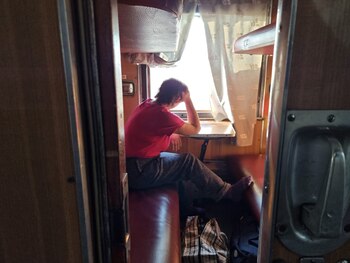
In the last 24 hours there were 140 rockets aimed at Kharkiv. There were also 44 shelling from tanks and mortars. There were also Kalibr cruise missiles, an extremely precise armament that flies at low altitudes and can avoid air defenses with fast maneuvers. There were planes flying over the city, drones, artillery, Russian troops trying to get in again and again. There was also an attack on an academy where a volunteer center operated. Six people died there. Kharkiv is today a hell on earth, the second worst place to be in Ukraine after Mariupol.
It's not strange then that the train doesn't arrive on time. He must leave at 23:00 hours from Kiev but the formation never shows up. There are two others who leave at one in the morning and at two o'clock, but suddenly they vanish from the station's timetable panel. The operation of trains is a feat in the midst of the war, but news coming from the second largest city in the country puts the delay in context.
Kiev station is quiet. It's not what it was a few weeks ago, when people were desperate to evacuate. Now there are few left in the capital, which is still waiting for the worst days. What is happening in Kiev today is a siege by droplet: inside the city a bombardment falls a day, or two, and Ukrainian forces begin to recover some of the lost ground in the northwest. On February 23, a journalist was killed, and a day before eight people were killed in the attack on a mall. In that context, to say that the city is still quiet is absurd, but the news coming from Kharkiv really announces that hell is something else.
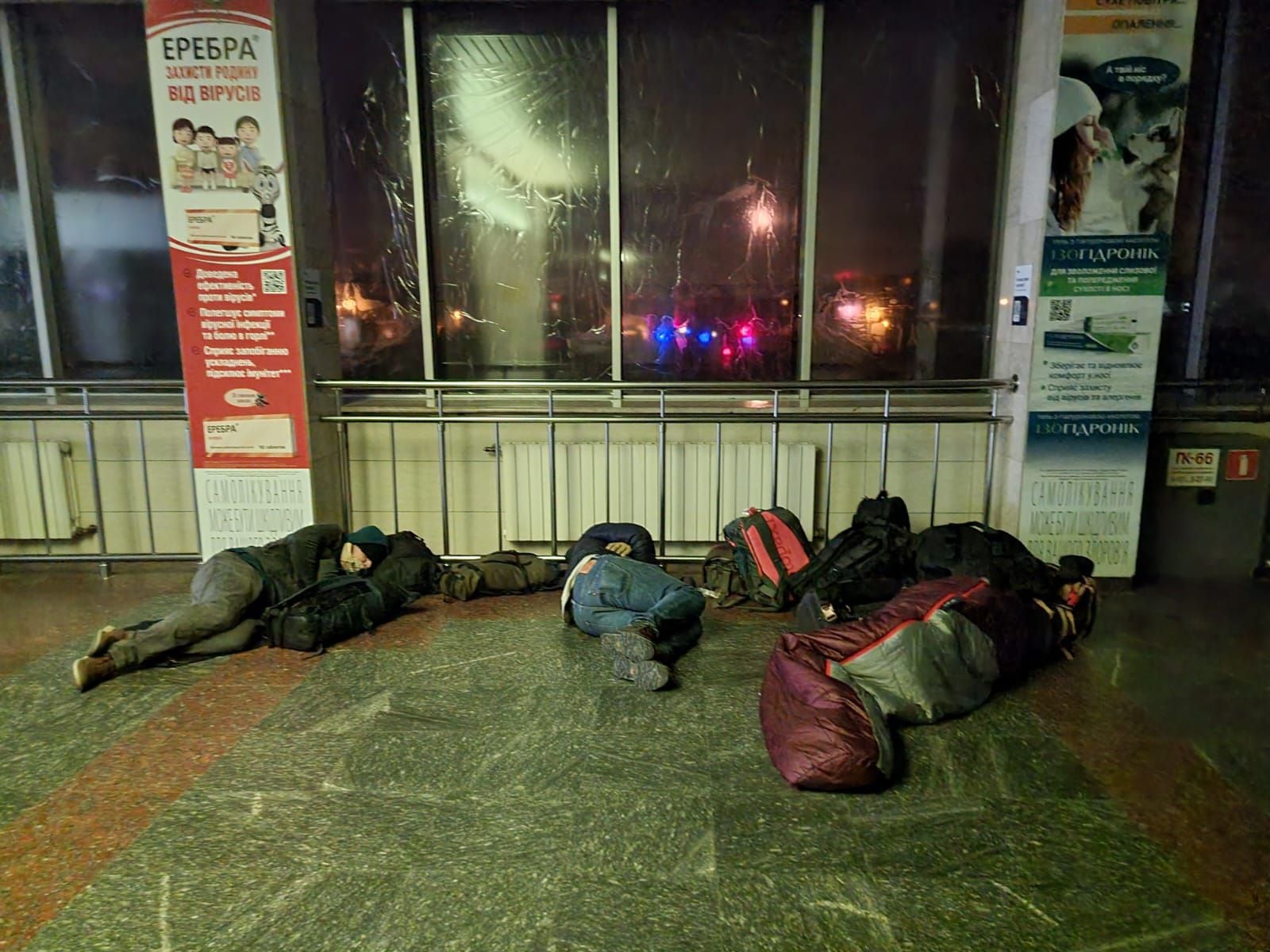
At five o'clock in the morning a woman's voice announces in Ukrainian first and in English later that a new train has just arrived on platform 13. It's just when Sergei appears, a 28-year-old boy, short blonde hair, red jacket, yellow technical backpack. “They are journalists,” he asks us, seeing the group of four that we make up. We say yes, we wait for a train to Kharkiv. “Move, move,” he responds. He then explains that the train that has just arrived has a final destination near the Donbas, and that it passes through Kharkiv. We don't know who he is or what he wants, he barely tells me that he has just arrived from Lviv to “do some things”, but in the context we are in sometimes it is a matter of trusting or being left with nothing. We chose to trust.
Sergei talks to a wagon manager and brings us up. I check several times that he is going to pass through Kharkiv and he always says yes. We went up. For safety, I travel with three colleagues with whom I became friends in my days in Kiev. During the trip I take pictures of them and they joke that they want to be famous in Latin America. Making jokes is the way we have to turn our backs on the fear that entering the east gives us.
I present to you: Juan Carlos, 47-year-old Salvadoran photojournalist, reporter with several wars going on, the 2003 invasion of Iraq, the recovery of Mosul in 2016, the rise of the Taliban in Afghanistan in 2021. He took photos that do not explain how he got out alive after shooting. He promised me that before the end of the coverage, he will also tell me his story. The other two travel companions are Daniel Carde, a 37-year-old American photographer living in Beirut, Lebanon, who covered for months the conflict in Iraqi Kurdistan against ISIS; and Seth Berry, also a 30-year-old American, who specializes in gangs in Latin America. On the train, we also met Pierre, a 28-year-old French journalist who spent several months in Iraq, Lebanon and Syria. Everyone arrives here with experience, but they move with the companionship and joy of the newcomers. It seems, in spite of everything, a happy place.
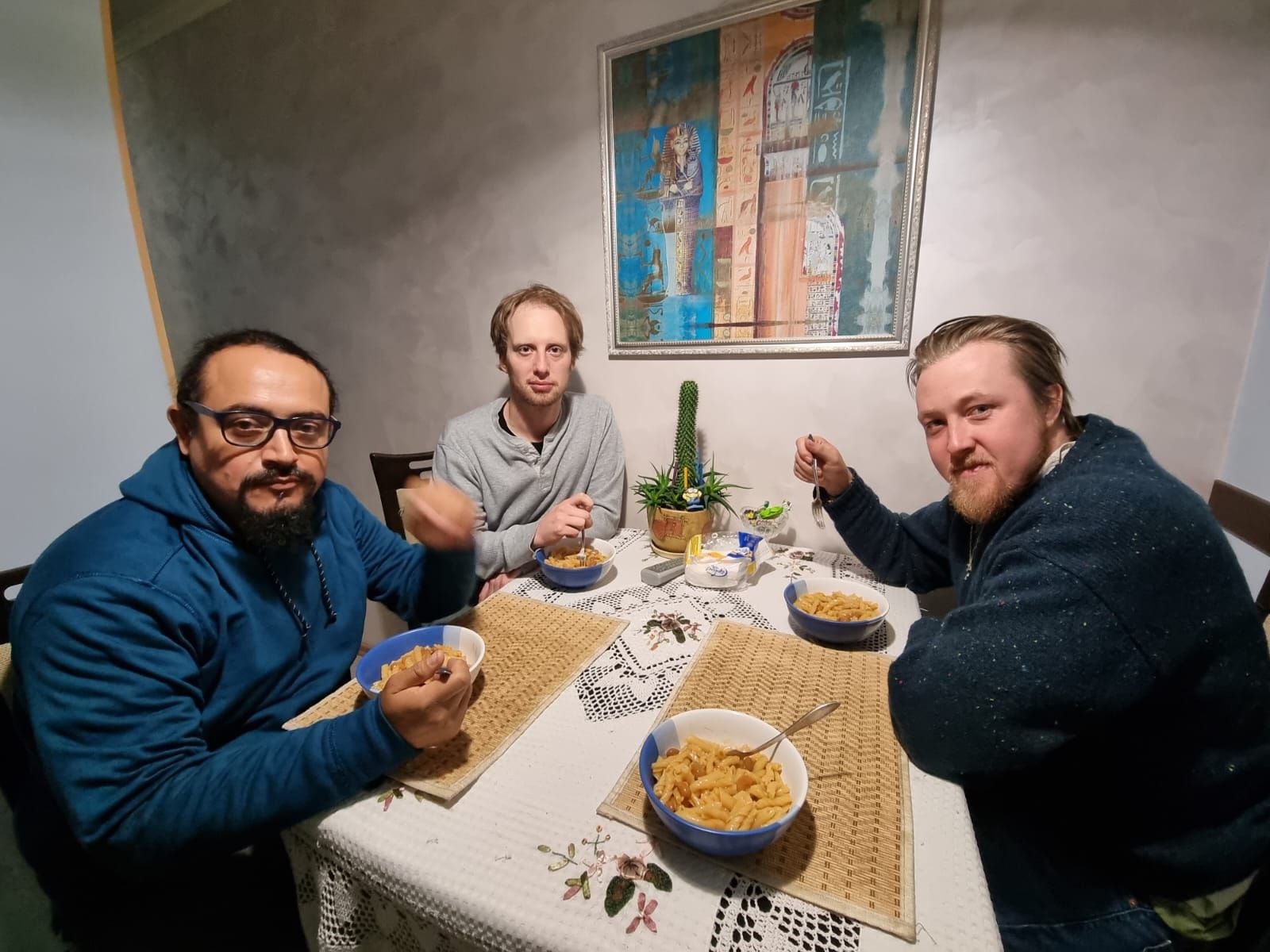
The train leaves the station at half past six in the morning. Under normal circumstances, it could take five hours to reach Kharkiv. All we want is for it to take less than twelve, to be able to arrive before the curfew, which has been in force there since 18:00 and is the strictest in the country. Unlike trains running west, this train is older, slower, and more time stopped. Sometimes it's a few minutes, sometimes more than an hour.
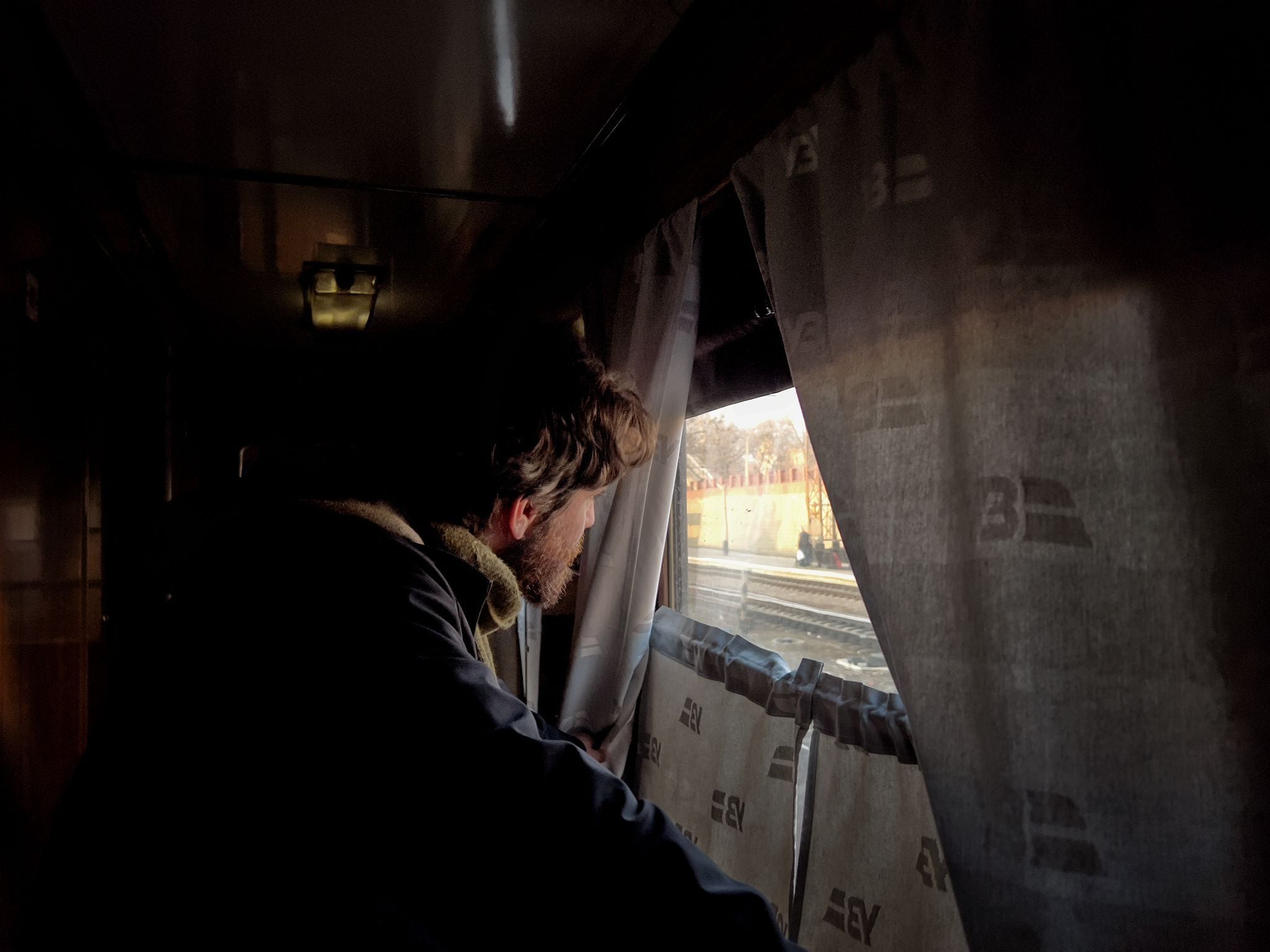
Those who travel, in addition to our group of journalists, are mostly people who decided to return home. Many went to quieter cities with the beginning of the war and now, a month later, they want to return. This is the case of Andrey, a man in his early fifties who has owned an arms factory for twenty years. Weapons are one of the main industries in Kharkov and it is not surprising that Putin has started his invasion around here.
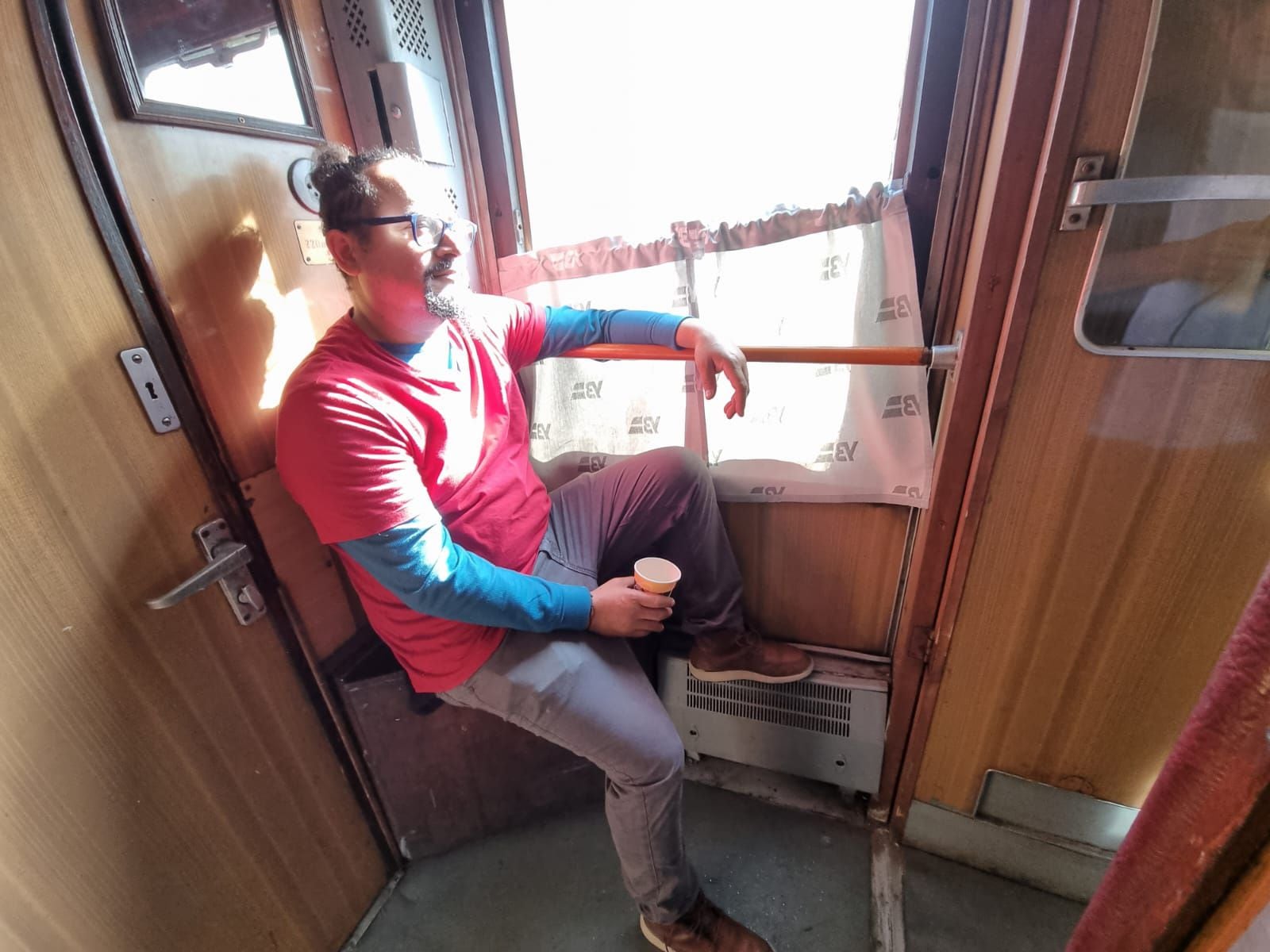
When the war began, Andrey made his factory available to the country, gave up all the weapons he had, and even some of his operators offered to help manage air defenses. He didn't want to leave town but his wife convinced him. Four weeks later, they return, also together.
Kate is another neighbor of Kharkiv who returns. She is 24 years old and is an interior designer. He left his city at the end of February and is returning to help his best friend at a volunteer center. When the train arrives at the station in his city, he will look out the window and two tears will fall, one for leaving, one for returning. “I missed my city,” he will say, although his city is hit by 80 missiles a day and has already more than 1,100 buildings destroyed.
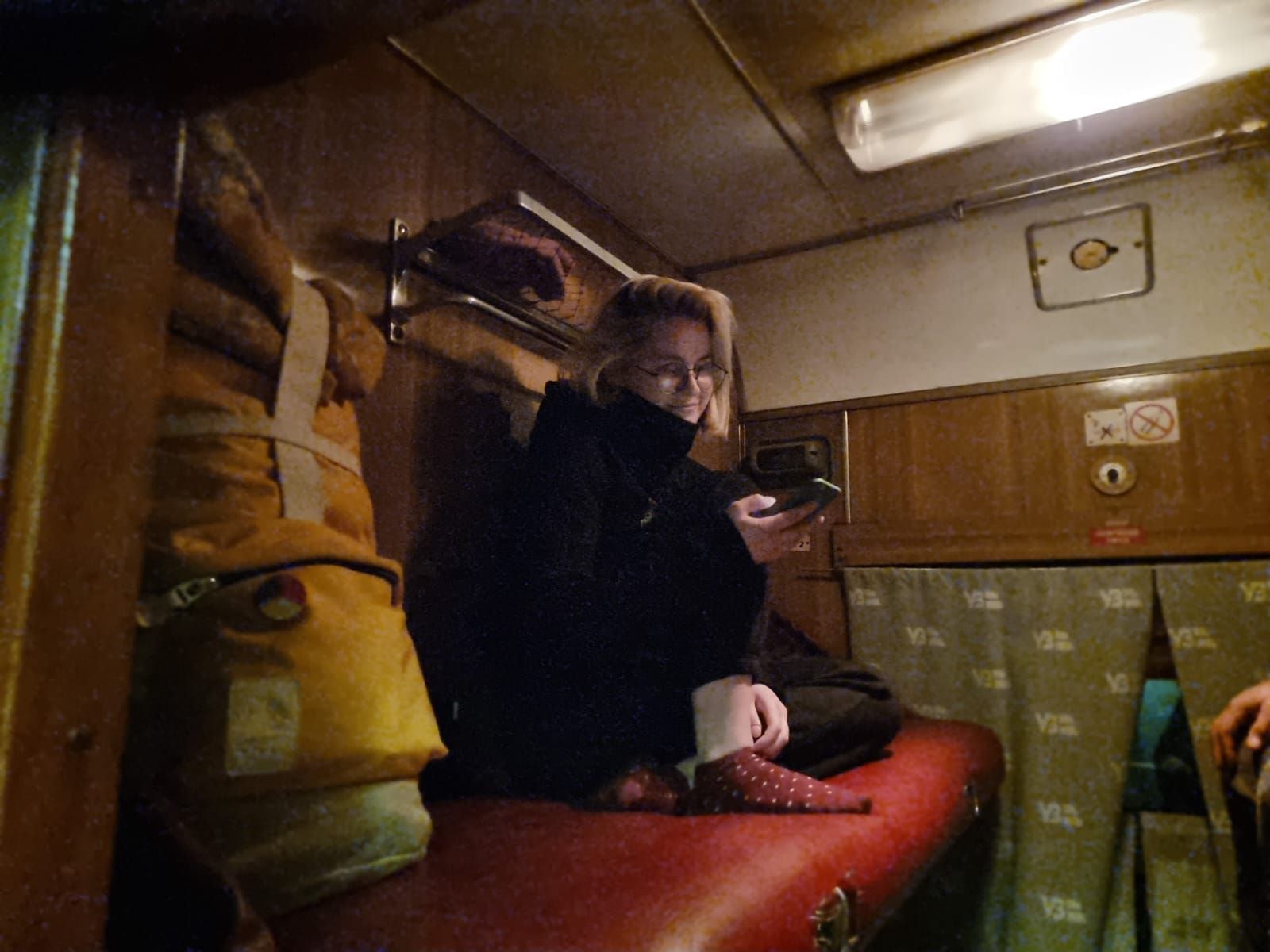
The journey is long but at the end we stop less. We arrived at a quarter past five in the afternoon, barely having time to get a car and go to our apartment. It is almost impossible to get a hotel in the city today, most of them are closed and those that aren't, full.
Our lodging is a picture of the situation: we are going to sleep in the house of a family who decided to evacuate. Just entering Ukraine you come across infinite stories of people who leave, who left their homes, who took only what was necessary and left. Rarely, on the other hand, one encounters those abandoned houses, apartments scrambled by a quick exit, places interrupted.
In one of them we are now, in a building so similar to those I saw bombed in Kiev, the same monoblock facade, the same wooden balconies. It is lent to us by the son of the family who left, who wanted to stay and fight but since he had no combat experience they gave him volunteer tasks. He doesn't want us to pay him anything for the house, he thinks that the work of journalism in his city is important, that there are few who go and need to show the world the destruction that Russia is subjecting them to. Everyone's fear around here is that Kharkiv will not become the next Mariupol, where there are no longer any journalists who tell the horror they are experiencing.
In the room of the apartment there is a desk full of computer cables not plugged into any computer, as if they had been pulled out in one breath and that's where the connectors were left. In the living room, a fish tank has the typical stones, the snails and the sea environment, but it has no water and the fish are gone. I wonder what they have done with them, if they left town with a bag of water so as not to abandon them. I choose to believe in that version.
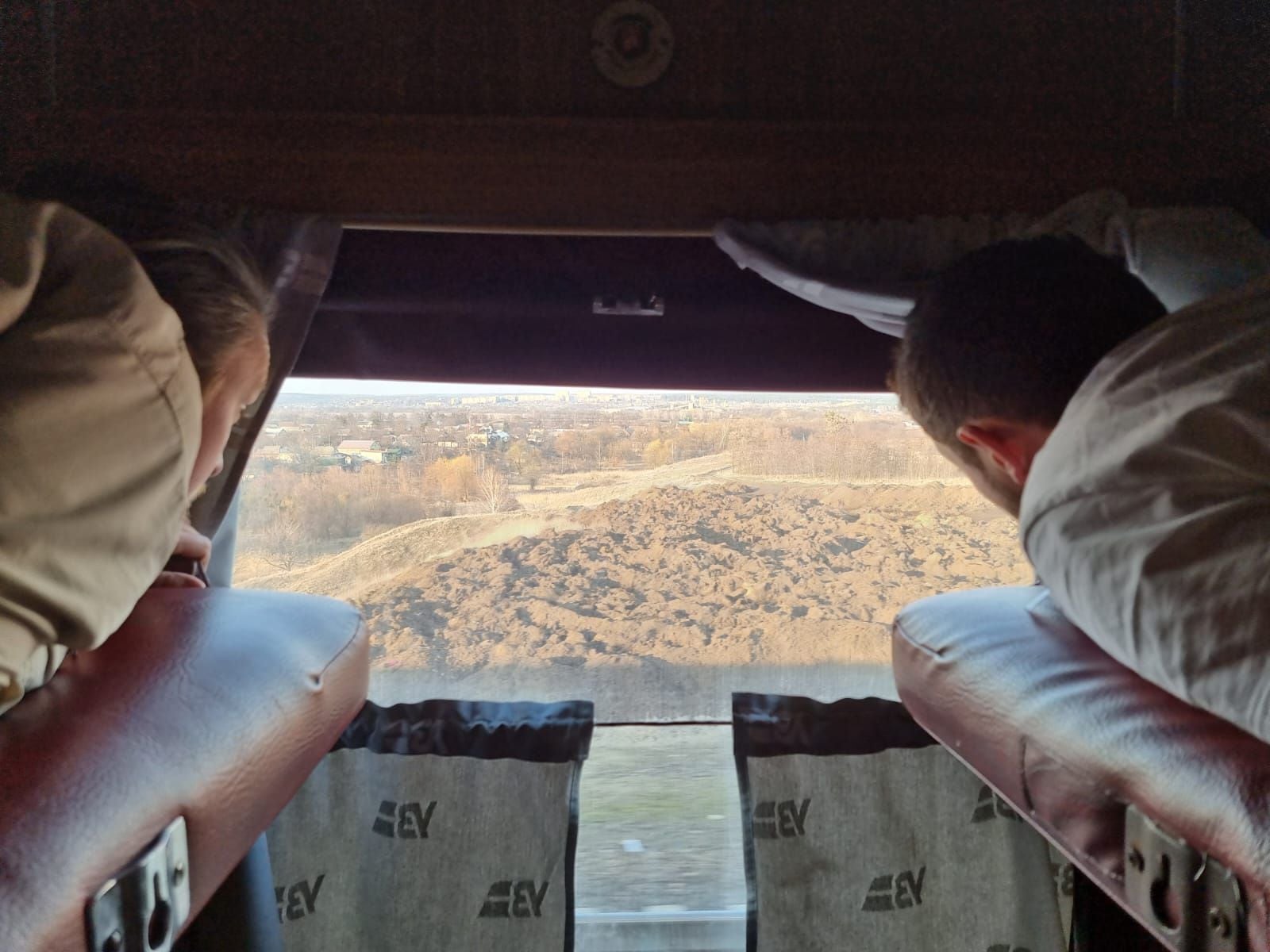
The four of us eat together and talk about plans for the next day. Everything in Kharkov is dark and already on the way from the station to the house you notice the difference with any other city. Everything is completely empty, there are no checkpoints, the few cars there are moving at full speed through the streets or avenues. Destroyed areas appear every now and then, but today there was no time to stop.
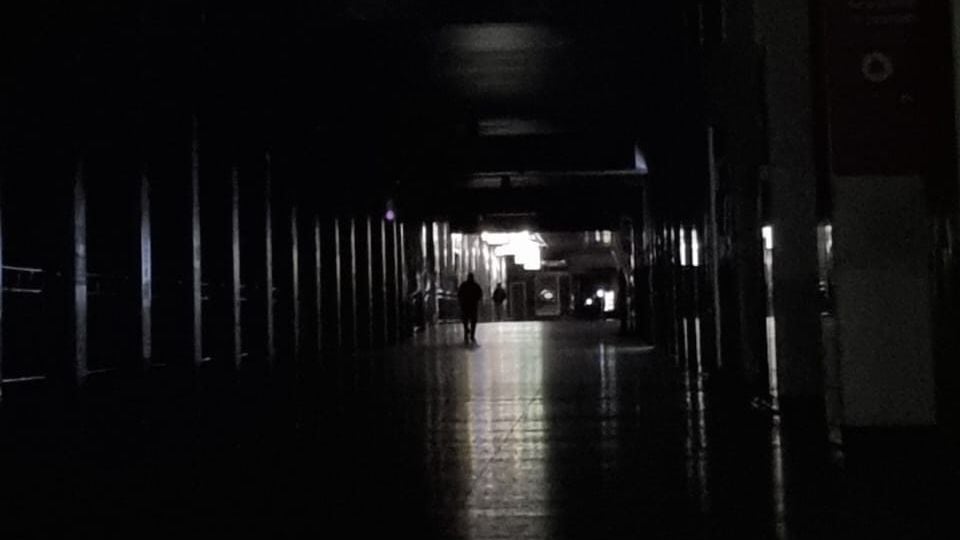
At seven o'clock it gets dark and no one turns on the lights. I close my eyes for a while to rest. My colleague Juan Carlos does the same thing, we fell asleep sitting down. A while later, the welcome happens: a rumble sneaks into the dream, then another, and another, until I finally wake up. A stronger explosion awakens Juan Carlos. I take shelter in the hallway, he's going to look at the window.
For two or three minutes a lot of rumbling sounds. There is a calm of half an hour and then another one sounds, which this time makes the house vibrate. The first were apparently anti-aircraft defenses, missiles coming out. The last one, one that fell. I look out the window a while later. On the black night of Kharkiv you can see the high, dense and bright fire. Something's on fire in the city, again. It won't be a good night for anyone, nor will it be one to sleep. To get to hell is to stay awake until you become part of it.
KEEP READING
Últimas Noticias
Debanhi Escobar: they secured the motel where she was found lifeless in a cistern
Members of the Specialized Prosecutor's Office in Nuevo León secured the Nueva Castilla Motel as part of the investigations into the case

The oldest person in the world died at the age of 119
Kane Tanaka lived in Japan. She was born six months earlier than George Orwell, the same year that the Wright brothers first flew, and Marie Curie became the first woman to win a Nobel Prize

Macabre find in CDMX: they left a body bagged and tied in a taxi
The body was left in the back seats of the car. It was covered with black bags and tied with industrial tape
The eagles of America will face Manchester City in a duel of legends. Here are the details
The top Mexican football champion will play a match with Pep Guardiola's squad in the Lone Star Cup

Why is it good to bring dogs out to know the world when they are puppies
A so-called protection against the spread of diseases threatens the integral development of dogs



